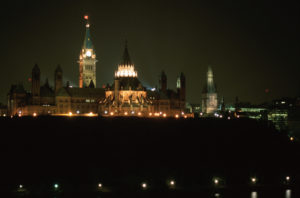Three Ways Canada Can Help Afghan Refugees

We’ve all watched the images from Afghanistan with dismay. Fearing for their lives under the Taliban, desperate people are looking for a way out. If the past is a prologue, Taliban rule will cause millions of Afghans trying to flee. According to the UN, nearly five million were refugees or internally displaced before the NATO-led coalition arrived in 2001.
Afghanistan’s population has doubled since 2001, so another major humanitarian crisis appears imminent, and it’s incumbent on Canada to act.
Since the end of the Second World War, Canada has helped those in need. In this case, we have an added moral obligation to provide safety to the Afghans who assisted Canadian troops, diplomats, Canadian NGOs, and our allies. Afghans who helped foreigners are now walking targets for the Taliban, and we, as Canadians, can’t leave them hanging out to dry.
Let’s remember that this federal election campaign gives us the opportunity to identify solutions. Every party that aspires to lead our country for the next four years must present robust and specific plans, so we can compare them before we go to the polls.
Here are three significant actions that whichever government forms after Sept. 20 should do to help Afghans.
First, we need to make a significant initial commitment and set a deadline to resettle vulnerable refugees. The still-governing Liberals have said they’d resettle 20,000 Afghans. The Conservatives, NDP, and Greens have also promised to resettle Afghans. This is all welcome, but we need details.
For instance, any commitment must come with a deadline. Since 2001, Canada has resettled about 23,000 Afghans, but we hope the new government can do more in less time – a few months, in fact, rather than more than 20 years. We no longer have the luxury of time, given Afghans are now subject to brutal Taliban rule.
We’ve done it before. Operation Syria showed us that even the most aggressive of deadlines can be met, as long as it has the full weight of the government behind it. Canada successfully resettled 25,000 Syrians in just 100 days between November 2015 and February 2016. The three levels of government, together with Canadians from all walks of life, worked day and night, seven days a week, including through the winter holidays, to reach this goal. Canada can use this know-how to meet its Afghan target in very little time.
Yes, the pandemic poses additional logistical complications, but we can, and must, respond quickly to this crisis. Operation Syria also posed logistical challenges, yet the Canadian government upheld its duty to screen for health, security, and criminality before welcoming Syrians to our shores. We can do the same for Afghans.
Second, we should increase the initial target over time. Canada has welcomed 45,000 Syrians since 2015 – 20,000 more than its initial target. Before its civil war, Syria had a population of about 23 million. In all, Canada has resettled 0.2 per cent of that number. About 40 million people live in Afghanistan, suggesting Canada would need to welcome 80,000 Afghan refugees to match its Operation Syria effort.
The figure is ambitious, but let’s remember that half of Afghanistan’s population will be repressed by the Taliban for the simple reason that they’re female. Female journalists, parliamentarians, activists, lawyers, teachers, judges, and athletes will be at greater risk, along with other minorities, anyone LGBTQ, and human-rights defenders. Canada, its Armed Forces, and many Canadian-led NGOs supported these very individuals and their efforts. We therefore have an honour-bound responsibility to offer them safe haven.
Third, Canada should expedite the processing of applications through the Private Sponsorship of Refugees Program. The generosity of Canadians is limitless. About 400,000 privately sponsored refugees have arrived in Canada since we became the first country to launch the program in 1978 – including 19,000 Syrians since 2015. There should be little doubt that Canadians are willing and able to support the arrival of tens of thousands of privately sponsored Afghans.
But the Canadian government must do its part to facilitate these private acts of generosity. Depending on the Canadian visa office abroad, processing can take three or more years before sponsored refugees are approved to move to Canada. This is far too long and impractical, in light of Canadians’ desire to help, and the need to respond swiftly in the wake of Taliban aggression.
Canada deserves credit for already stepping up to the plate while its allies are still deciding what they’ll do to help Afghans. Given the magnitude of this crisis, we hope Canada will take these three steps so that even more innocent Afghans get a second lease on life.
Click here to read the op-ed in iPolitics